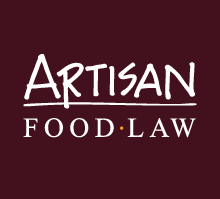Defra issues draft guidance on food labelling regulations
The publication of the domestic regulations and guidance on the implementation of the food information to consumers Regulation (EU) 1169/2011 (the FIC Regulation) was expected much earlier this year. The general labelling requirements under the FIC Regulation will take effect on 13 December this year and food businesses are understandably anxious in the absence of certainty and clarity surrounding key aspects of the implementation of these provisions. Earlier this month, no doubt in recognition of the level of anxiety shown, Defra circulated a draft version of the guidance. The draft has not, however, been published or made available on the Defra web site and it adds some 16 pages to the guidance published in November 2012.
In Scotland, Wales and Northern Ireland, reference should be made to any guidance issued by the devolved administrations, in particular where issues of enforcement are concerned.
The new regime will replace the general labelling Directive 2000/13/EC and the Food Labelling Regulations 1996. The FIC Regulation is directly applicable throughout the EU while the domestic regulations will contain enforcement measures and take advantage of certain permitted derogations.
Since 1 January 2014 minced meat must meet the fat and collagen composition requirements of the FIC Regulation. A derogation is proposed which will allow minced meat carrying the national mark to contain higher levels of fat and collagen but this does not apply until the domestic regulations are in force.
The key changes taking effect on 13 December later this year include:
- A minimum font size for mandatory information.
- The provision of allergen information for non-prepacked and prepacked food. The use of allergen boxes will no longer be permitted.
- Added water declarations for meat products and preparations having more than 5% water and the same for fishery products.
- Flour milled in the UK must state the statutory nutrients added.
- Existing domestic measures on the composition of ice-cream to be revoked.
- Changes to chocolate labelling.
- Changes to additive labelling on prepacked-for-direct-sale food.
Fresh and frozen pork, poultry, lamb and goat meat are subject to origin labelling from 1 April 2015. Finally, mandatory nutrition declarations for prepacked food will be required from 16 December 2016 but any provided voluntarily before this date must be FIC Regulation compliant.
Generally, foods labelled before 13 December 2014 which do not comply with the requirements of the FIC Regulation may be marketed until stocks are exhausted.
The only offences, so far, under the domestic regulations are the failure to comply with the allergen requirements of the FIC Regulation or with an improvement notice issued under the domestic regulations. A person found guilty of an offence will be liable, at present, to a maximum fine of £5,000 but this will become unlimited later this year with changes to the standard scale of fines.
Only recently, in the case of Torfaen v Willis, were the limits of the offence of selling food “after the date shown in the ‘use by’ date relating to it” under the Food Labelling Regulations 1996 settled. This offence will cease to exist and, in future, it would appear that such acts would be prosecuted under food safety legislation on the grounds that a ‘use by’ date is applied to food microbiologically unsafe after this date.
Clearly, further details will be forthcoming, not least bringing into force domestic food information regulations making provision for enforcement and other matters. Artisan Food Law will provide a full briefing once the regulations and guidance are finalised. It is, however, all getting rather late in the day for hard pressed food businesses.





